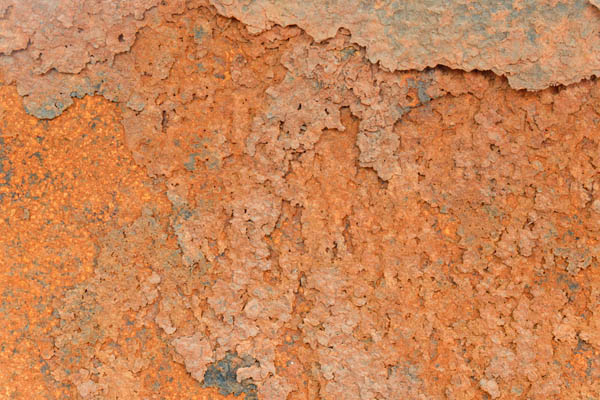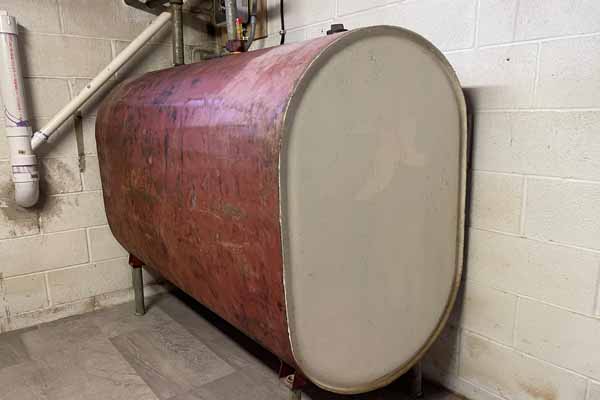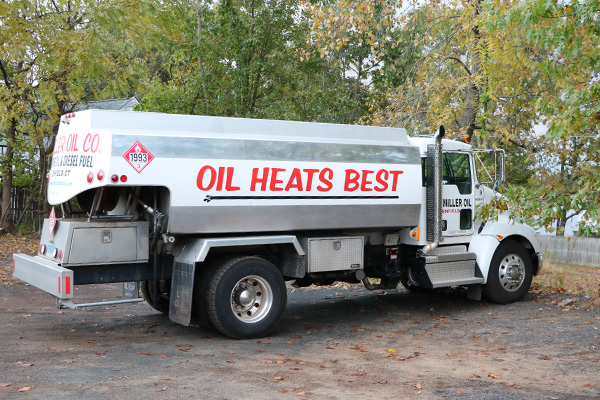Oil Tank Condensation: What You Need To Know

Oil heating systems use fuel oil tanks to store and safeguard the fuel required for operation. While this setup is generally effective, it does have its drawbacks. One of the issues that can arise is the presence of water within the heating oil tank. This can lead to problems like oil tank condensation. Although this is a common occurrence, it is entirely preventable with the proper measures in place.
Oil Tank Condensation: What You Need To Know
Contents
- 1 Oil Tank Condensation: What You Need To Know
- 2 Call Miller Oil Company For All Of Your Home Comfort Requirements
Continue reading for additional information about oil tank condensation and effective preventive measures.
Related Article: The Best Ways To Prevent Running Out Of Heating Fuel This Winter
How & Why Water Gets Into Your Home Oil Tank

Water is a pervasive element found in various forms throughout nature. Over time, it can gradually infiltrate the tank. By understanding the entry points through which water can penetrate the oil tank, you can take proactive steps to prevent its recurrence.
- Rainwater: When your oil tank is outdoors, it becomes vulnerable to rainwater exposure. Water, being persistent, can find its way into tight specs and narrow gaps, including loose caps and lids. Tanks places near the house may be at risk of gutter overflows. Older oil tanks may have weakened areas, such as damaged seals and cracked walls, that provide potential entry points for water.
- Condensation: Regardless of your oil tank’s location, condensation poses a continuous risk. The air vents in the tank can draw in moist air from the outside environment. If the interior temperature of the tank is sufficiently low, the water vapor in the air can condense from a gaseous state into a liquid form. As a result, droplets may form on the interior walls of the tank and eventually collect at the bottom. Although a few water droplets may not be a significant concern, without intervention, the condensation is prone to intensify over time.
- Groundwater: Water can enter underground oil tanks through holes around the container, posing a concern. It not only allows water to enter but also risks oil leakage and soil contamination. Any signs of damage to underground oil tanks require immediate professional assistance.
Related Article: Can I Put Diesel Fuel in My Home Heating Oil Tank?
What Happens When Water Gets into the Heating Oil Tank?

Detecting moisture in an oil tank is challenging because oil floats on water, especially in underground oil tanks. Water often goes unnoticed for extended periods until symptoms appear.
When water enters your heating oil tank, it can lead to various issues and potential consequences:
- Fuel Contamination: Water in the tank can contaminate the heating oil, affecting its quality and performance. This can lead to problems with the combustion process, reduced efficiency, and potentially clogged fuel lines or nozzles.
- Oil Tank Corrosion: Water promotes corrosion, particularly in metal tanks and metal components. The presence of water can lead to rust and deterioration of the tank. This can result in leaks or structural damage over time.
- Microbial Growth: Water provides a breeding ground for bacteria, fungi, and other microorganisms. These can thrive in the tank, forming sludge or sediment, clogging filters, fuel lines, and nozzles. Microbial growth can also contribute to foul odors and impact the overall performance of the heating system.
- System Malfunction: Water reaching the burner assembly or combustion chamber can disrupt the heating system’s operation. Water can extinguish the flame, cause misfires, or even damage critical components. These lead to malfunctions and potential breakdowns.
- Increased Maintenance and Repair Costs: Dealing wit water-related issues in your heating oil tank can result in additional expenses. The costs can add up from cleaning and purging the tank to replacing filters, nozzles, or even the entire tank.
Related Article: How To Choose The Best Home Heating Oil Delivery Company
How To Prevent Heating Oil Tank Condensation

To prevent water from entering your heating oil tank, here are a few practical strategies you can implement:
1. Check the Fuel Oil Tank Regularly
Develop a routine of inspecting the exterior of the tank for indicators of damage like rust, paint chips, and perforations. Check all the lids and caps to make sure they are securely closed and fastened tightly.
Related Article: How Much Heating Oil Will I Use A Day?
2. Test for Water Presence
In addition to visual inspections, conduct periodic water tests to detect any presence of water. Use a water-finding paste, follow the manufacturer’s guidelines, or seek advice from a heating oil expert. Apply the paste to the bottom of the tank to check for moisture. For underground tanks, do a soil contamination test to assess water infiltration.
3. Protect The Heating Oil Tank from Heat
To minimize condensation caused by temperature fluctuations, install a new tank in a shaded area. Apply light-colored reflective paint to the exterior of the tank. This protective measure helps mitigate heat absorption and reduces the likelihood of condensation forming inside the tank.
Related Article: What Happens When The Furnace Runs Out Of Oil?
4. Keep Your Heating Oil Tank Full
To minimize the risk of condensation, avoid allowing the fuel level in your tank to drop to extremely low levels. Maintaining a higher fuel level reduces the amount of moisture in the air that can enter the tank and helps prevent condensation. Maintain timely oil deliveries to keep the tank consistently filled during both the heating season and the off-season.
Related Article: What Is That Whistling Sound During An Oil Delivery?
5. Call the Professionals
Have professionals inspect your heating oil tank and replace old tanks when needed. Experts can provide recommendations on the optimal placement of your tank, ensuring longevity and functionality.
How An Expert Removes Water From Your Oil Tank

If a moisture test confirms the presence of water, have a professional handle the removal process. Depending on the situation, here are some steps an expert may take to address the issue.
- Drain: Metal tanks typically feature a sludge valve at the bottom, which can be opened by a professional to drain the water. During this process, some oil may also flow out. The technician will collect the liquid and dispose of it appropriately.
- Pump: Unlike metal tanks, plastic tanks do not have a sludge valve. However, a hand pump can be used to remove small amounts of water. A hand pump is not sufficient for large volumes of water, so professional technicians will use other tools to address the issue.
- Absorb: A professional technician may insert a water-absorbent sock into the tank to prevent moisture from accumulating at the bottom. These socks will require periodic replacement, typically every few months.
Related Article: How To Lower Your Oil Bill This Winter
What Happens If You Do Not Remove Water From Your Oil Tank
- Rusting: Neglecting the presence of water in your heating system can lead to significant damage over time. Despite its seemingly harmless nature, water can cause corrosion of the oil tank walls. Most steel heating oil tanks rust from the inside, which means the exterior may appear fine while the interior is deteriorating. This weakening of the tank walls can lead to future issues and a decline in the system’s efficiency and performance.
- Freezing: Oil has a low freezing point, allowing it to withstand cold temperatures during winter. Water, on the other hand, behaves differently. Water freezes when the temperature drops to 0 degrees Celcius or 32 degrees Fahrenheit. In oil tanks, frozen water can block the supply pipes, resulting in a complete system failure right when heating is needed the most. Be aware of this potential issue and take preventive measures to avoid such a situation.
- Bacterial Growth: Moist environments provide favorable conditions for the growth of bacteria. In the case of oil tanks, water presence creates an ideal habitat for these microorganisms to thrive. As they multiply, they can transform into sludge that accumulates at the bottom of the tank. Bacteria can produce acid, which accelerates corrosion within the tank and affects burners, filters, and fuel lines. This can result in significant and detrimental problems for the system. Addressing water-related issues in heating oil tanks is vital to prevent bacterial growth and the subsequent damage they can cause.
Conclusion
To maintain the integrity of your heating oil tank and prevent eating system issues, you must prevent water from entering. Adhering to the prevention strategies mentioned above and seeking professional help for more complex situations will help ensure water stays out of the tank. You can avoid tank damage and potential problems with your heating system by keeping water out.
Related Article: The Drawbacks Of Purchasing Low-Quality Fuel Oil For Your Home
Call Miller Oil Company For All Of Your Home Comfort Requirements

Miller Oil Company provides the best cooling and heating services in Hartford County, Connecticut. We employ top HVAC technicians who are certified and offer superior HVAC installations, repairs, tune-ups, and replacements. Every one of our knowledgeable technicians has the experience to correctly service your HVAC.
By working with Miller Oil Company, you will receive the best service costs for cooling and heating in the region. With our repair and maintenance services, you will find that your comfort and energy efficiency are improved, and your home cooling and heating costs are reduced. If you require a replacement HVAC unit, we can suggest the most appropriate model for your house that is within your budget. We include a satisfaction guarantee for all of our work. Click the link to view our service area.
We also offer superior heating oil deliveries. You can choose from one of our oil delivery plans or financing options. This way, you can customize your oil deliveries to meet your needs. We use high-quality oil, and all of our deliveries are fast and reliable. Give Miller Oil Company a call today to learn more.
Click here to contact us today or give us a call at (860) 745-0326 if you have any questions.